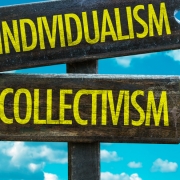Taxation is something that is steeped into the secular consciousness. It is rarely questioned, and to even consider questioning it is often met with a disapproving reaction, as if you are failing or betraying your society by doing so. You’re not fulfilling your civic duty, or your “social contract”, so to speak. I’ve always found this puzzling, this idea that it’s selfish to want to keep all of the fruits of my labor for myself. Or at least if I’m going to redistribute it charitably, I’m the one making the decision to do so.
On face value, this doesn’t seem like something that anyone would disapprove of, but what I have found is more people than not seem to find the idea of not paying taxes to be absurd and preposterous. An individual who wants to keep their wealth as their own is frowned upon as greedy and non-caring to the community that surrounds them, especially if they have a lot of money.
Whether it’s selfish or not itself is just a matter of perspective of being good or bad, however. Being more concerned about what you will do to eat today as opposed to your neighbor is inherently selfish, but it’s a survival instinct. Everyone by nature cares more immediately about their own well-being than all the billions of others on the planet. This isn’t to say that you don’t care about others, whether they’re friends, family members, or complete strangers, and you may even voluntarily choose to sacrifice yourself for them given the circumstances. But what it is saying is that if your own well-being weren’t of the most immediate and intimate concern, then you would have no fight or flight instinct, and no will to live and survive.
This brings us back to overall selfishness. When you live your life “for the society” first and put your own needs second, it’s ultimately toxic for you AND society. This is because one is going against their intrinsic nature. If you aren’t satisfying your own needs first, and pursuing your own happiness and liberty first, your energy and efficiency in contributing to your environment will significantly decrease, if not transform into something purely destructive.
These ideas about selfishness expand into private property and what you own. The car that you drive is more important for you than anyone else’s car, for example. Your house getting flooded will be of a higher concern for you than if another stranger’s house a mile away floods. This is just the stuff of nature. It’s why you would get angry and perhaps worse if someone just came into your room and started taking your belongings.
Of course, theft can also be considered selfish. But the conflict that occurs during theft happens because one person’s will is clashing against another person’s will. So it’s not selfishness per se that is the problem, but the way that one acts upon it. The question is whether one is being honest with themselves about their intrinsic selfishness or not, and then behaving accordingly. Pretending that it’s not there out of some twisted sense of “altruism” is unhealthy, just as using it in a distorted sense to obtain what you want to the exclusion of the will of others is also unhealthy. Free trade leads to a harmony of will, while theft leads to a clash of will.
Back to taxation.
Interestingly, one may realize that taxation is a twisted sense of altruism via obtaining what is wanted (money for public services) by clashing with the will of others. Sure, there are plenty of enthusiastic citizens out there who will gladly pay their taxes while touting, “who will pay for the roads if I don’t?”, but what is important to note is what their personal consequences will be if they don’t. They will be jailed. No contract was signed that was agreed upon that justifies those consequences. It’s just imposed on the populace through coercive force. (Also, it should be noted that privately funded roads do exist. Crazy, I know.)
Essentially, my commentary boils down to individualism vs. collectivism, which has been at center stage of the core of philosophical and political debates all through human history. Perhaps we need to revisit this age-old debate and contemplate a little deeper. I’m certainly not the first to write about it, but I’m writing about it now because collectivism, which utilizes taxation, is so casually accepted in the coarse consciousness of society at the present time, especially for those who politically lean left and consider themselves “liberal”.
Many younger Americans think collectivism is the answer to all of our current problems. Redistribute everything and spread the wealth. End inequality. Tax the rich harshly to help the poor. It sounds nice and liberal on the surface. But it falls apart when dissected. Is it really liberal to use identity politics as a means of judging people about whether they fall under your mental compartmentalization of being part of the “oppressed class” as opposed to the “capitalist class” (as if capitalism is a class at all)? Identity politics is a collectivist movement. Is it really liberal to use mob mentality and demands to pressure policies into place through harassment of lawmakers and creating spectacles, all in the name of “social justice”? Mob mentality is a collectivist mentality. Is it really liberal for a society to not want to create wealth but to rather just evenly distribute it, which will eventually halt all growth? Socialism is a collectivist movement.
The problem is that collectivism is based on an underlying illusion. For, it is the individual who exists and who strives for the pursuit of happiness and liberty, not “the society”, which is nothing more than a phantom concept. It’s a useful concept, but ultimately it’s a ghost with no literal reality to it. How can a philosophy that is based on a phantom concept be the best answer? Individuals, on the other hand, do have a tangible reality, and the liberties of individuals timelessly get eroded by the sweeping attitudes of collectivism.
Gold and silver being treated as currency is something else that has lasted all through human civilization, up until very recently, that is. Since metals are an element of the Earth, they’re not owned by any central authority. This decentralized nature is the brilliance of it. Decentralization should be the default of any legitimate currency because it keeps the power out of the hands of a small minority who create and control the distribution.
We have temporarily strayed into pure centralization and manipulation of fiat currency, as the dollar is no longer backed by anything (such as precious metals). But I see an inevitable return back to the metals being acknowledged as legitimate at some point in the near future. Why? Because the fact of history is that every fiat currency collapses at some point, and one must remember this at all times, especially at this point in our global economy; the dollar is no longer backed by anything and hyperinflation runs rampant. In the course of the remainder of my lifetime, I could very well see the dollar collapse entirely. The precious metals will then make a huge comeback; hence the inevitability. Whether this ‘near future’ is 5 years, 25 years, or 50 years isn’t relevant in the overall bigger picture. It’s the inevitability that matters.
Cryptocurrency entered this world from the cypher punks. Just as with the metals, a unique and key feature of the idea of cryptocurrency is its decentralization. The first attempt at Bitcoin was BitGold, and indeed, its being treated as digital gold is what was aimed for. Although the original intention of it as a peer-to-peer form of electronic payment that completely supersedes any need for a centralized middle man, such as a bank, has remained, I do believe there is another half of the equation.
Many of the other cryptocurrencies out there, the altcoins, have already started forms of centralization. Some use a system called “governance”, where a select chosen few represent the overall project, as well as maintain ultimate control over all funds, to the trust of everyone else. I find it unbelievable not only that this is taking place at all, but that it is ALREADY taking place in the very early stages of cryptocurrency’s development. This seems to completely defeat the point of what cryptocurrency was all about in the first place, as its very nature is meant to be trustless and without centralization.
I also believe that these movements towards “governance” have to do with a larger conspiracy. I think that it’s an overarching movement to invoke a paperless society on a global scale, so that everything can be tracked and watched on a connected grid. What was initially an extremely libertarian, anarchist idea got taken by other forces for their own benefit. This is what I believe is happening, and it is a form of selfishness that clashes with the will of others. Not surprisingly, this globalist drive towards a paperless society is a collectivist movement. There seems to be a huge pool of two different forces at work in the crypto space. Both have radically different intentions on the uses of cryptocurrency.
Taxation on precious metals and cryptocurrency is what stops them from being true contenders with the dollar, and is just yet another form of control from those who want to run the world. Instead of being acknowledged as legitimate secondary options of currency, which is what a healthy free market capitalist society would allow, taxing in the form of sales tax on precious metals and income tax on cryptocurrency is thwarting and undermining them both to the benefit of the dollar. Gold and silver are sound money, used for millennia and truly decentralized, thus having no need to be taxed. Cryptocurrencies are in high demand from consumer interest and speculation, and are their own currency due to peer-to-peer agreement and growing mass adoption. Taxation undermines these facts. The only way to legitimize a competition of currencies is to remove extortion methods imposed on the trading of these currencies.
This article originally appeared on Medium: https://medium.com/@cosmosaic/taxation-on-precious-metals-and-cryptocurrency-is-toxic-collectivism-ae24cf1d5267













